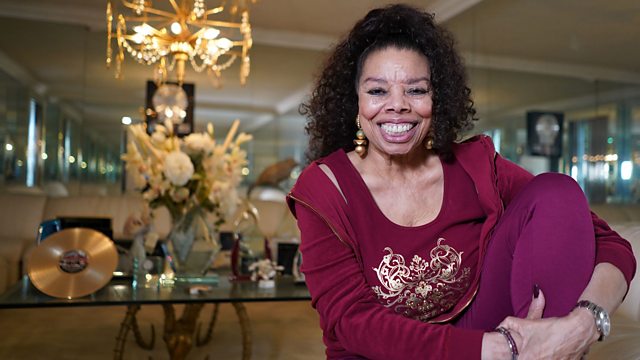
Sweet Love
How, in the 70s and 80s, a second coming of soul men offered a black female audience slow jams and sexual healing.
How, in the 70s and 80s, a second coming of soul men, led by Teddy Pendergrass, Marvin Gaye and Luther Vandross, offered a black female audience slow jams and sexual healing.
In the early 70s, Memphis was the capital of gospel-infused soul music, thanks to two key labels. One was Stax, the other was Hi Records - a high church of soul presided over by Al Green whose Let’s Stay Together pre-figured a new type of soul man, one who would come to dominate the 70s - a sensitive lover man.
In Philadelphia, a new record label was born that would also soften soul’s hard edges. Philadelphia International Records was home to Harold Melvin and the Bluenotes, from whose ranks Teddy Pendergrass would emerge. PIR was also home to the O’Jays, who embodied Philadelphia’s message of love and togetherness.
Fresh from the monumental success of What’s Going On, Marvin Gaye went to work on his follow-up, shifting focus from the streets to the bedroom with Let’s Get It On. Bedroom soul was also epitomised by the sensitive, thoughtful Barry White, whose deep baritone put both black and white audiences in the mood.
In the mid-70s, disco became a lucrative sideline for female singers who delivered first-hand songs about love, loss and empowerment such as Candi Staton’s Young Hearts Run Free, whilst Millie Jackson did what the soul men did, only more so, telling it like it was.
This episode also looks at the Quiet Storm radio format, conceived by billionaire entrepreneur Cathy Hughes, targeted at a black female audience. The title was borrowed from Smokey Robinson’s 1975 album of laid-back soul ballads, and the genre helped make stars of artists such as Peabo Bryson, whose smooth ballads led the listener discretely to the bedroom door.
The tragic death of Marvin Gaye, on the back of his biggest success - Sexual Healing - and the paralysis of Teddy Pendergrass seemed like bad omens for soul in the 80s. But one artist filled the gap. New York-born Luther Vandross started out as one of the most in-demand backing vocalists before redefining soul with Never Too Much. Luther may have been the 80s soul king, but he did not rule alone. Anita Baker was the queen. Her 1986 hit album Rapture pursued a similar, contemporary yet retro take on soul.
However, Luther couldn’t hold back the tide forever. The birth of hip hop as a political force and the arrival of MTV closed the door on soul, ushering in a new era for black music. The soul epoch may have been over, but the music never went away and, from time to time, it resurfaces in all its glory.
With The O’Jays, Al ‘Fonzi’ Thornton, Marcus Miller, Nat Adderley Jr, Jerry Cummings, Charles Hodges, Candi Staton, Peabo Bryson, Millie Jackson and Cathy Hughes. Expert analysis from Mark Anthony Neal, David Ritz and Nelson George.
Last on
More episodes
Previous
Next
You are at the last episode
Music Played
-
![]()
Marvin Gaye
Let's Get It On
-
![]()
The O’Jays
Love Train
-
![]()
Marvin Gaye
I Heard It Through The Grapevine
-
![]()
Luther Vandross
Never Too Much
-
![]()
Whitney Houston
How Will I Know
Credits
| Role | Contributor |
|---|---|
| Narrator | Carleen Anderson |
| Director | Ben Whalley |
| Series Producer | Ben Whalley |
| Executive Producer | Mark Cooper |
Broadcasts
- Fri 18 Sep 2020 21:00
- Sat 19 Sep 2020 01:00
- Sat 24 Oct 2020 23:30
- Sat 22 Oct 2022 00:55
Featured in...
![]()
Hip-Hop
Discover the Finest Hip-Hop Music on iPlayer


